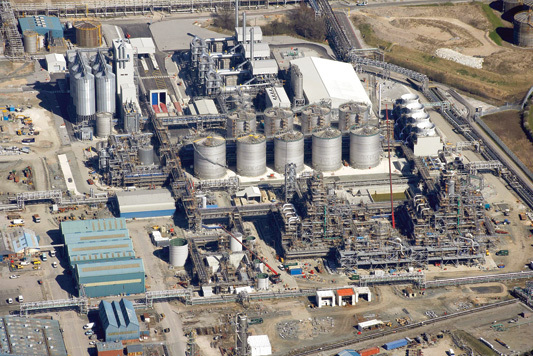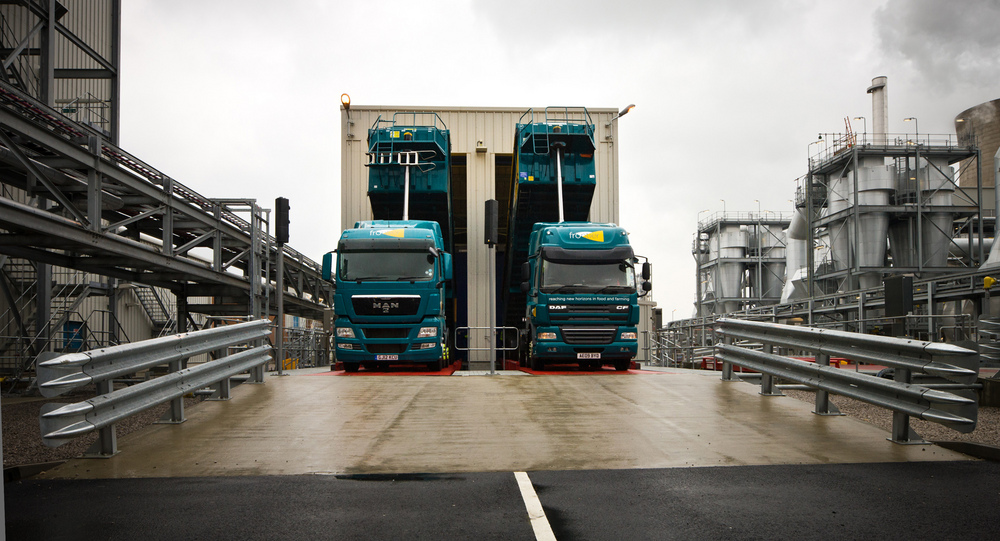Revving Up for Production



PHOTO: VIVERGO FUELS
May 10, 2012
BY Holly Jessen
A 420 MMly (110 MMgy) wheat-to-ethanol plant in Hull, England, is expected to provide one third of the U.K.’s forecasted biofuel demand once fully operational. Construction on the Vivergo Fuels Ltd. ethanol plant was in the final stages and commissioning had begun in early April. “The Vivergo biorefinery, which will be one of the largest in Europe, will start production in late spring 2012,” the company says.
The $458 million project is a joint venture between three companies, including BP and Dupont—both of which have been involved in the biofuels sector. The third, ABSugar, is a sugar and ethanol producer. The company’s first ethanol facility started up in 2007 in Wissington, U.K., producing up to 70 MMly next to a sugar factory. ABSugar is also a seed technology supplier and sells renewable electricity to the grid from its combined heat and power generation systems at its beet and sugar cane plants.
The Vivergo ethanol plant will take in 1.1 million tons of local feed-grade wheat, meaning the company will become the U.K.’s largest single wheat tipping point. The first loads of wheat were delivered to the facility in late March. The company’s sole wheat supplier is Frontier Agriculture, which runs the Humber Gold club made up of area wheat farmers, according to Anja Hazebroek, communications manager for Vivergo Fuels. “This represents a landmark milestone for farmers,” the company says.
Humber Gold “adds up to a great opportunity for farmers,” according to the Frontier Ag website. Club members can take advantage of a 17 percent maximum moisture content requirement. In addition, the company’s iTrac service offers farmers the ability to view details of their load weight and analysis online or by text message within 30 minutes of delivery.
Advertisement
The ethanol plant is also expected to be the largest single source supplier of animal feed in the U.K., producing about 500,000 metric tons of distillers grains yearly. The coproducts produced, including dry pelleted and moist meal distillers grains as well as liquid solubles, will provide the protein requirements for more than 340,000 dairy cows daily, about 18 percent of the national dairy herd. Marketing and distribution of the company’s coproducts will be handled by AB Agri.
The plant creates about 80 permanent, full-time jobs. Another more than 1,000 jobs will be supported throughout the company’s supply chain. The ethanol produced will save more than 50 percent greenhouse gas emissions, compared to gasoline. —Holly Jessen
Advertisement
Upcoming Events





